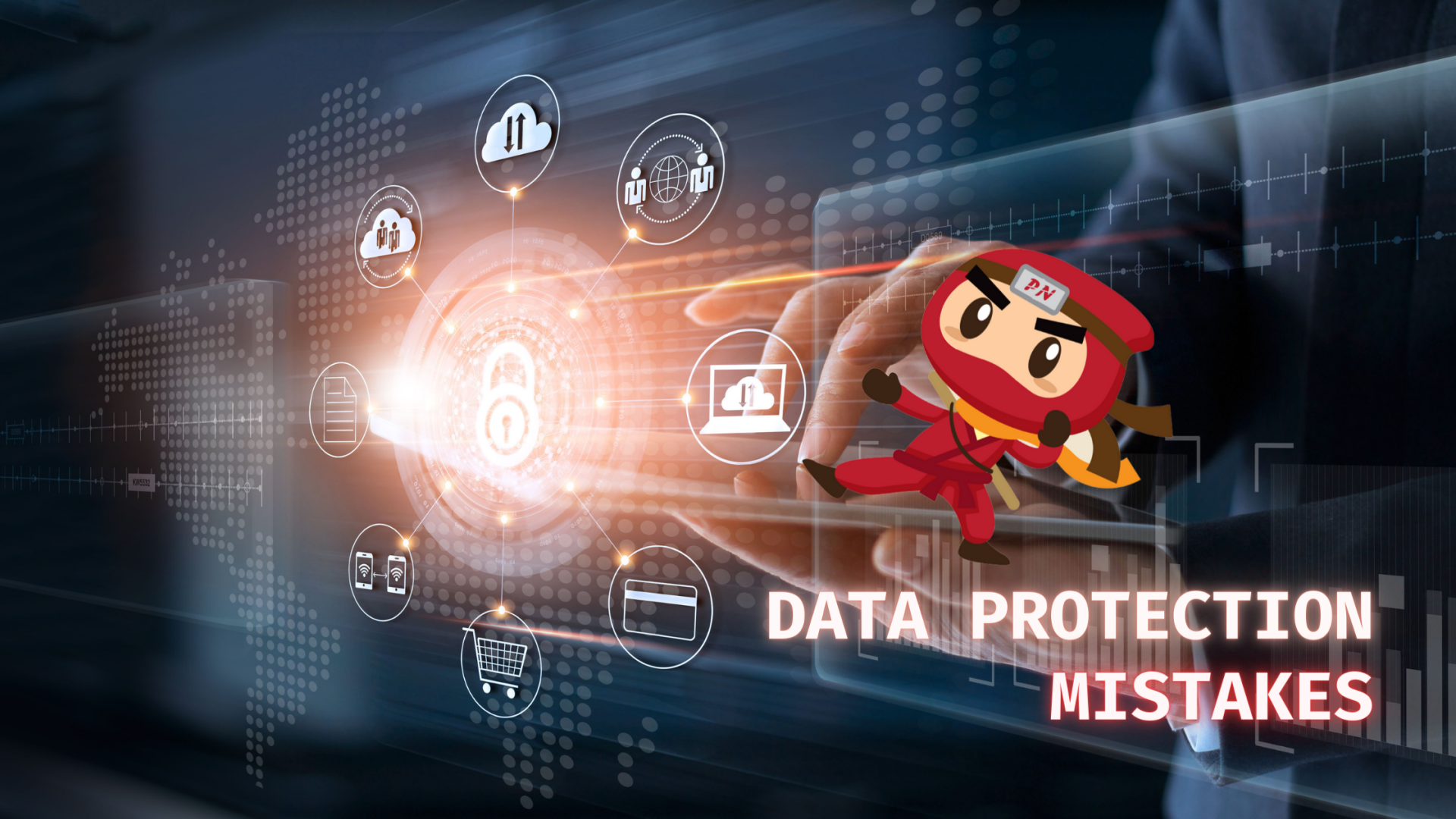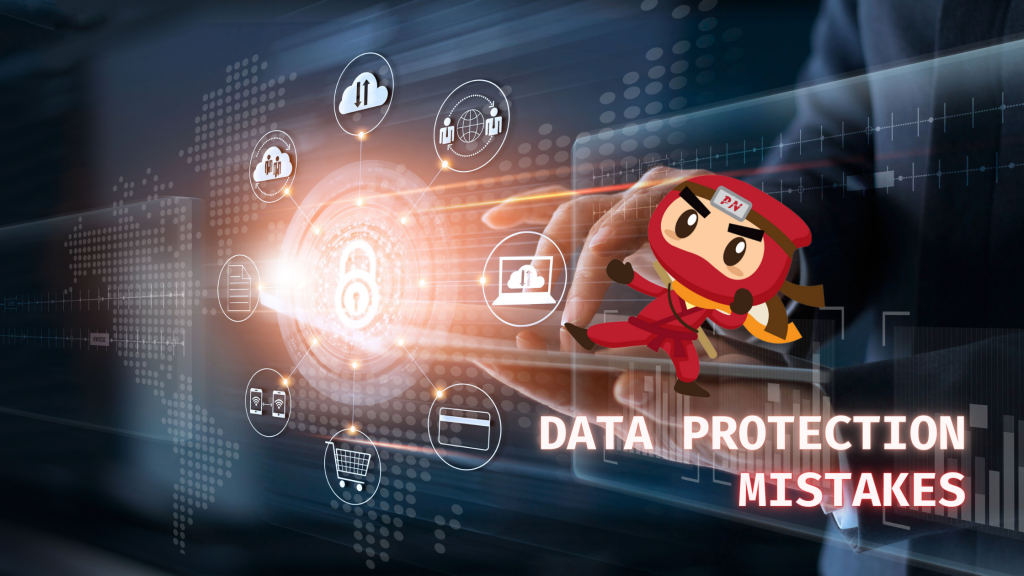KEEP IN TOUCH
Subscribe to our mailing list to get free tips on Data Protection and Cybersecurity updates weekly!







The alarming increase of data breach incidents among organizations is clearly indicative of the lack of their experience and resources in effective cybersecurity implementation. Coupled with the onset of the global pandemic, companies nowadays are faced with the challenge of not just keeping their business afloat, but also in protecting their valuable data.
While keeping your business operations fully functional is still supreme; having a robust cybersecurity protocol spells the difference between a sustainable system network and financially draining fines or penalties. To avoid the latter scenario, here are the top three common data protection mistakes that we’ve curated from veritable cybersecurity experts!
There is a maxim in data management that compliance does not always equate to security. This particularly holds true among organizations who focus their limited security resources on complying with regulations and, once they receive their certifications, become complacent.
A typical mindset on SMEs often leads to their compliance with the barest minimum standards of security in the belief that they can easily fly under the regulatory body’s radar.
In fact, to “save” on costs, other organizations sometimes opt to simply copy the privacy policy of another company without fully comprehending the stipulations therein. This leads to the creation of greater cybersecurity risks instead of mitigating such.
Also Read: What is Social Engineering and How Does it Work?
Cybersecurity expert Douglas Landoll posits that a common mistake within organizations is to simply assume compliance based on a brief internal review and completion of a questionnaire.
“This set and forget approach to compliance has led many organizations into a false sense of compliance and an increased risk when the inevitable breach occurs.”
Douglas Landoll

Granting that an organization is aware of the primal need for data security, studies still show that many SMEs have no one specifically responsible for protecting a company’s sensitive data.
If the business doesn’t have enough budget for IT security solutions, including big data encryption, any data breach can be very well attributed to those making the financial decisions– from managers to CEO.
This position can be traced back to a survey wherein 29% of IT decision-makers are of the common belief that it is the CEO who should be ultimately accountable for any large-scale data breach.
But in the event that such authority and responsibility is duly delegated to another employee, for example a Data Protection Officer (or even an outsourced DPO for that matter) the accountability is effectively transferred and a better implementation and supervision of good cybersecurity practices, can be had.
Data breaches can also stem from known vulnerabilities that were left unabated even after the release of patches. This error may even be the most trivial among the common data protection mistakes as it is the easiest to address, should the organization simply allot the proper resources.
You must remember that threat actors are in the constant search of easy points of entry in your organization’s network. These vulnerabilities in your system can be the perfect opportunity cybercriminals are waiting for to stealthily exploit you data.
When addressing vulnerabilities, it is best to collaborate with cybersecurity experts. As revealed by a recent IDC research report, about 37% of respondent organizations admittedly struggle to manage data security especially when growing complexity of security solutions is accounted for. Thus, the safest bet is to contact reputable third party service provider.
While it is true that these common data protection mistakes can be hard to deal with, eliminating them altogether is not impossible. With proper employee training and good cybersecurity hygiene practices, your organization’s data management security policy can go way beyond just mere compliance.
This is where hiring an outsourced DPO can help. Aside from the fact that it is mandatory under the PDPA, an outsourced Data Protection Officer (DPO) oversees data protection responsibilities and the healthy cybersecurity hygiene of the organisation. Every Organization’s DPO should be able to curb any instances of cyberattack or any vulnerabilities in your system as it is the officer responsible for maintaining the positive posture of an organization’s cybersecurity.
Also Read: The Financial Cost of Ransomware Attack